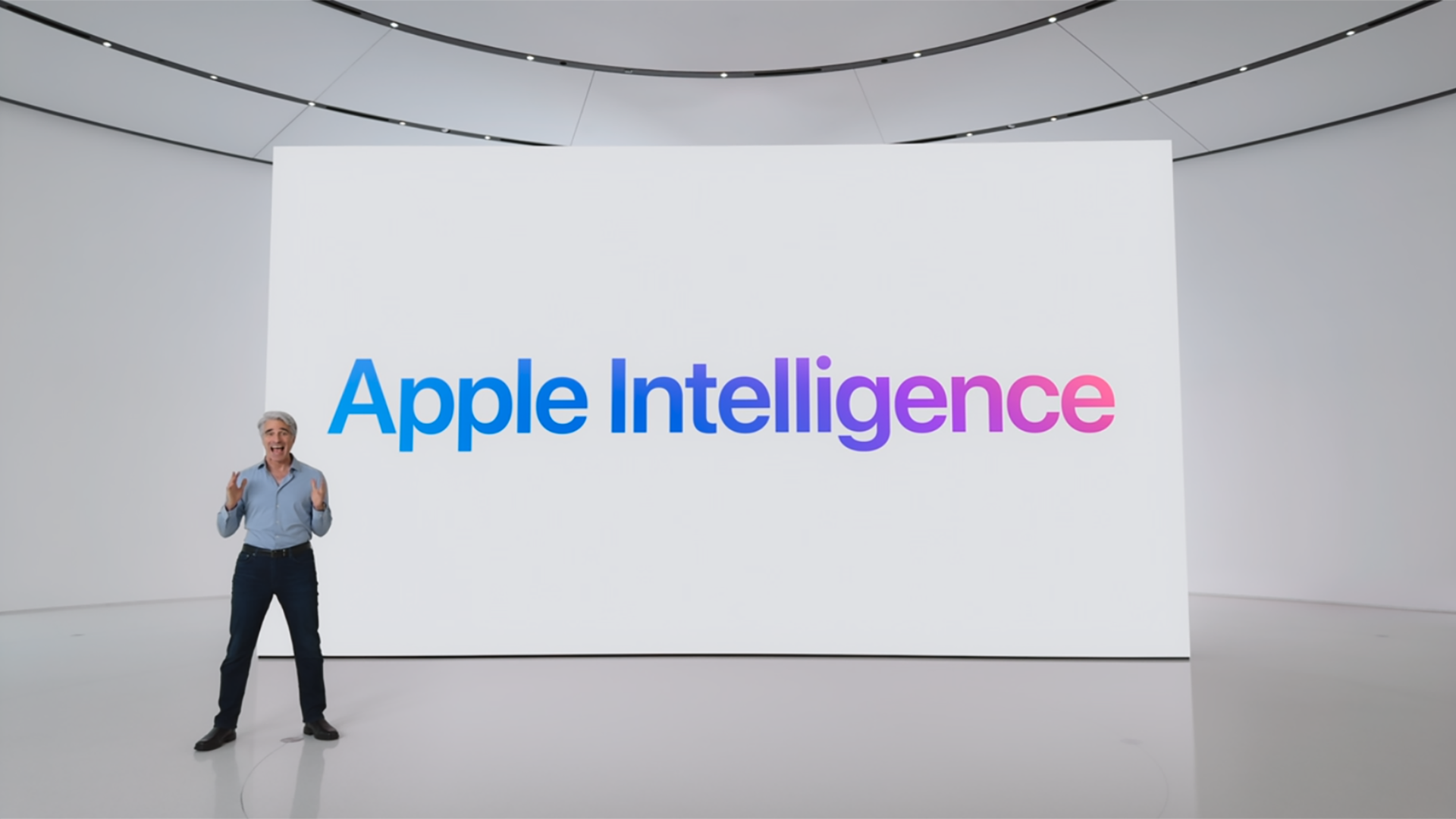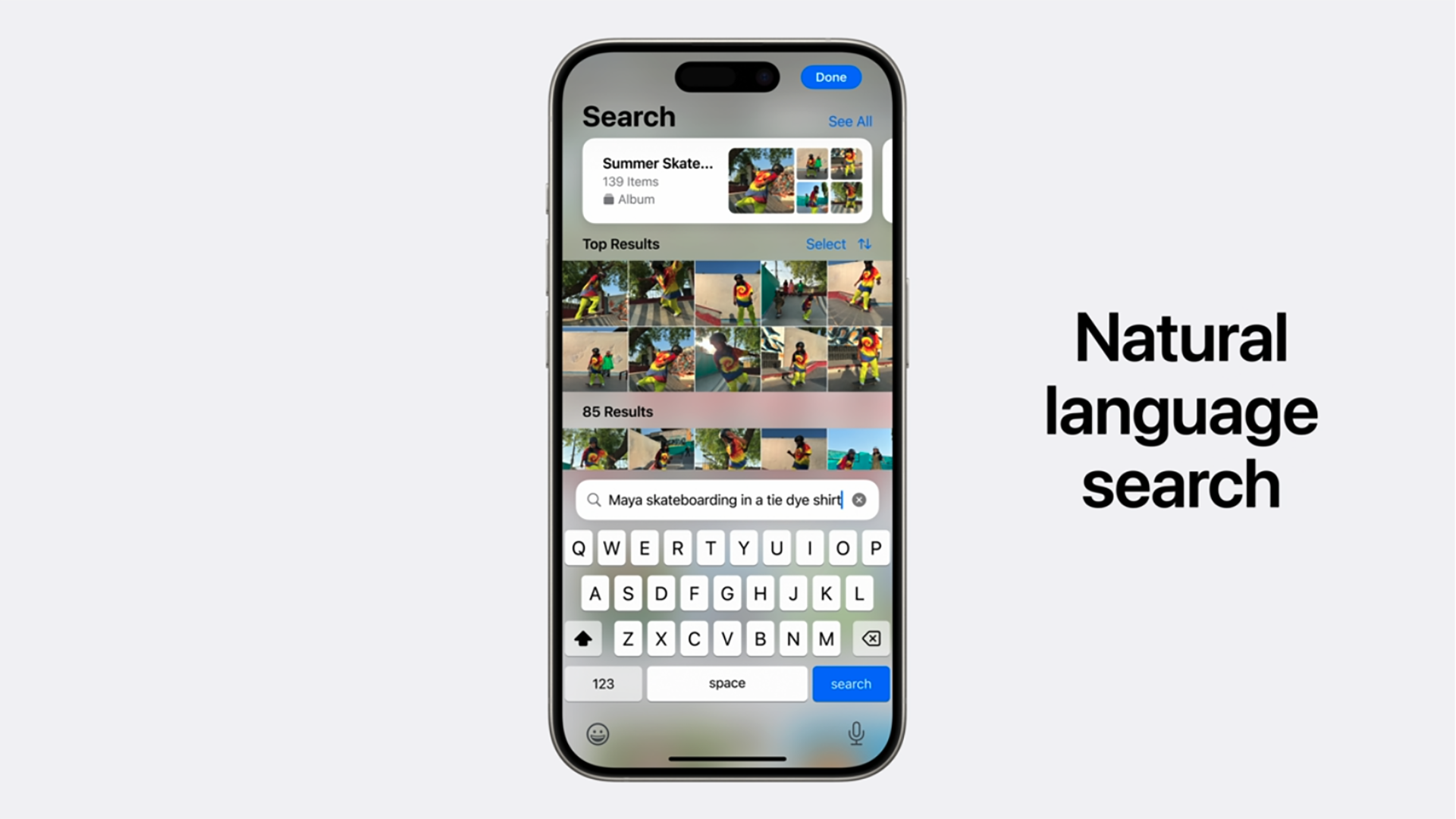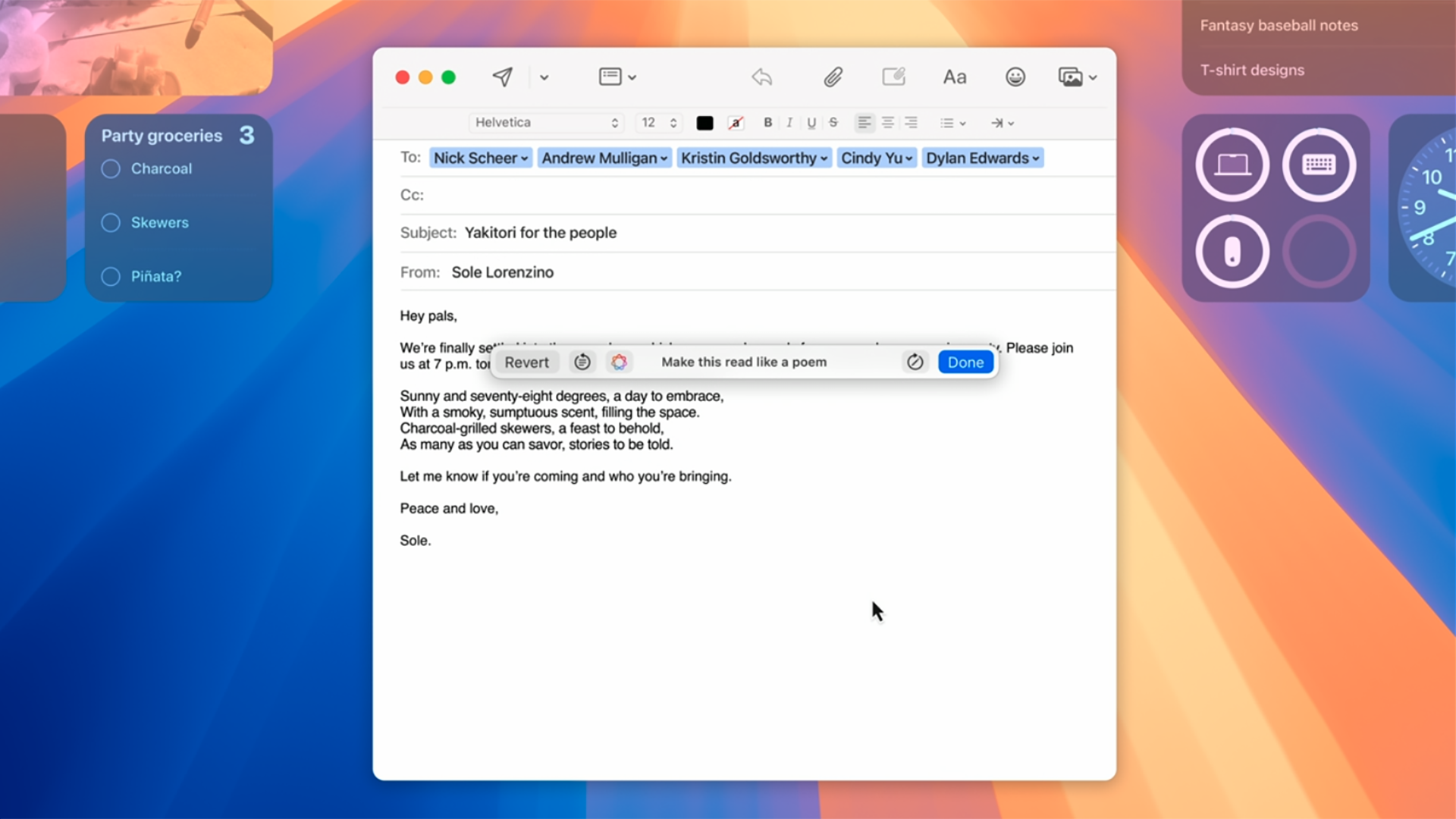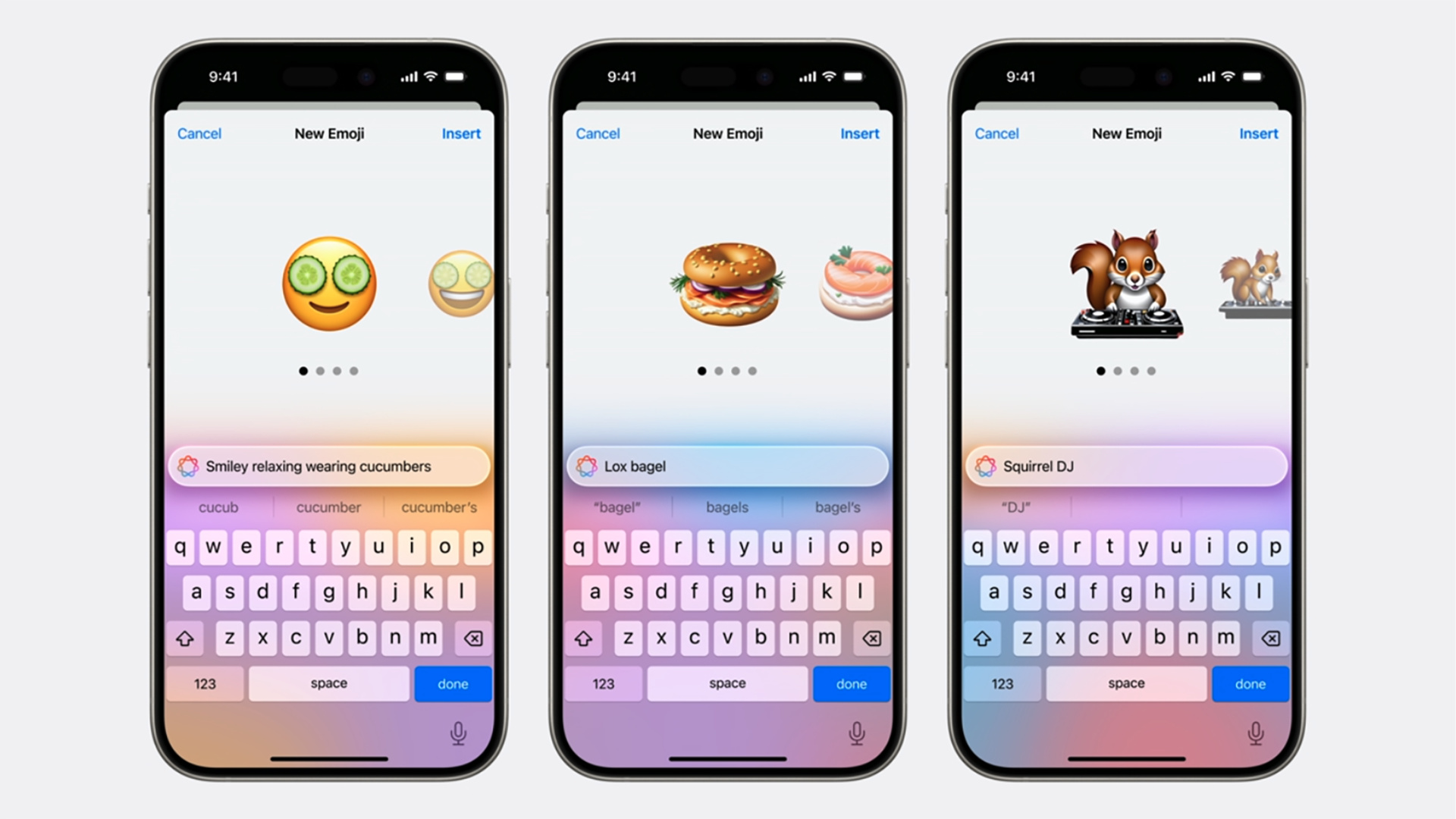
Apple finally unveiled its long-awaited AI offerings at this year’s WWDC, yet the term AI was hardly mentioned. Instead, this new technology was referred to as Apple Intelligence – which of course, still abbreviates to AI.
In recent years, the term AI has been slapped onto just about every consumer product, from laptops to air conditioners. The problem is not just that the term is extremely vague, but consumers have no idea what it means.
Apple Intelligence is approaching the problem in a different way. After all, it has been using neural engines in its chips for years and so for Apple, AI isn’t really that new. What Apple Intelligence provides is a personal context to what the system is capable of. It expands on the apps and services that users are already using to make busy lives easier.
None of these features are particularly new. AI-powered products have been able to summarise documents and rewrite emails for some time. The same goes for text-to-image creation and personal assistant conversations. The difference is that this is integrated into products people already know and love, providing clear benefits for them.

Even Apple’s integration with ChatGPT is made more user-friendly. You don’t need to sign up for a separate account and it tells you before it sends anything to Open AI’s servers. It also only sends the essential parts of that request, despite what Elon Musk may tell you.
Apple has been very clear about privacy here, with the majority of its intelligence carried out on device. When external input is required for those more intensive requests, it only sends the essential information to its own Private Cloud Compute servers, powered by Apple silicon.
Rather than talk about Apple Intelligence as part of the new OS updates, Apple covered it separately. That’s partly because the intelligence runs across all devices, from iPhone and iPad to Mac. It wasn't mentioned how it might work with the Vision Pro, but I'm sure it will.

The writing tools, which can proofread, summarise and rewrite with various parameters, feature across any Apple app where you write, as well as many third-party apps. It will be great for emails and documents, but will be just as handy for presentations and notes.
The new priority notifications should make it easier to get only the information you really need, and the priority list in Mail is something that I’ve been waiting a long time for. I also really like the idea of getting summaries of emails under a subject line, so I can quickly scan through.
The text-to-image features, which sit in the new Image Playground, are also a nice reinvention of a key AI skill. While you have been able to do this in everything from Midjourney to Adobe Firefly for some time, having it within the Apple ecosystem with such a friendly UI makes it accessible to all. Plus, the new Genmoji feature – that allows you to create custom emojis in seconds – is going to completely redefine their use.

One of the best parts of this Apple Intelligence though, is what it means for Siri.
Apple’s voice assistant has always seemed a little basic in the past, but with Apple Intelligence it becomes a full-on personal assistant. Not only is it context aware – so knows what app you’re in when you ask a question – but it can reference multiple apps to find information for you. Plus, based on the demos, it has a better understanding of natural language, so you can correct yourself mid-sentence, without having to start a request again.
Working with ChatGPT to provide further support is an unusual move for Apple but is one that expands the possibilities even further. Much like with search engines, it’s something you’d think Apple could do itself. However, partnering in this way allows access to an already proven AI success, in an environment you’re comfortable with.
The only downside I see is that use of these Apple Intelligence features is restricted to M-series models of Macbook and iPad, and just the iPhone 15 Pro and Pro Max. If you’re like me though, it does provide the motivation to finally upgrade.







